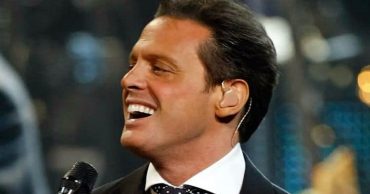It seems the further south you go music just seems to seep out of the ether at times as the people tend to enjoy their music on a daily and continual basis. Some people might hear noise when they think of jazz, but others tend to hear something within the notes that speaks of a melody and a harmony that takes a lot more than just your ears to listen to. The evolution and history of the Jacksonville Jazz Festival isn’t as extensive or as old as you might think, but it’s still impressive enough to bring into focus since like a lot of things in the south it’s a part of the lifestyle and the culture that a lot of people tend to like and hold up as an example of what makes the south so enticing for those that come to visit and enjoyable for those that live there.
It came to pass in 1979 when Jake Godbold was elected as Jacksonville’s mayor that he and his aide decided to found the jazz festival. At the time it was believed that it would aid the small fishing village of Mayport by bringing in more business and thereby stimulating the community with an influx of tourists that come equipped with money and a great interest for all things that are new to them. At the start it was a free event that would feature talented musicians from within the region and would also feature a major headliner. They only expected a few people to make their way to the festival, hundreds at best, but instead they saw thousands show up to enjoy the music and the good times. The year after that the attendance grew even higher and Mayport simply couldn’t support the load. The naval base was also kind of concerned about having so many civilians on its border that it became necessary to move the event to Metropolitan Park in 1982. At that time the costs were pretty low and there were enough sponsors to support the event, so there was no charge to attend the festival. Several groups around the area even pitched in with food and drink to make it a more exciting and friendly time for everyone.
This is how things went until around 1985 when the TV station WJCT decided to use the festival as their primary fund-raising event for years to come. At that time bigger names became attracted to the festival and the costs started to rise. In 1986 Miles Davis was given over three times what Dizzy Gillespie was given years earlier. The costs only increased from then on and by 1995 there was a $5 charge for the festival to cover what couldn’t be made elsewhere. It was noticed that a few people were lost that didn’t want to pay the charge and had come because it was free, but the festival kept moving forward and growing as more and more people continued to come for the music and the good times and didn’t seem to lament paying a charge for the experience. Sadly though the increasing number of people that wanted to attend wasn’t quite enough to keep the profits rolling in as the funding soon began to dry up due to sponsors pulling out and artists demanding more and more money. Eventually in 2000 WJCT withdrew from the festival, and it wasn’t held in either 2001 or 2002.
Thankfully the city decided to revive the event in 2003 and brought in Tony Bennett as the headliner. The only downfall was that he was the most expensive headliner the event had ever had, pulling in $100,000 for a performance that lasted just a little over an hour. There was also $10,000 in expenses that had to be paid, but amazingly the festival didn’t charge admission in 2003. This of course cut hard into their profits, but the festival continued, even when it rained in 2004 and the festival lost another half a million dollars due to a poor turnout. In 2006 the city still faced a deficit even after deciding to charge for admission again, and as a result in 2007 and 2008 they were forced to scale back on the performances. In other words they were losing too much money no matter what they did, especially when their headliners began demanding too much money.
The unfortunate part of a festival is that some people come just for the music and a good time. They’ll gladly pay for goods and services if it means having a good time, but when you have headliners and other artists that are going to demand exorbitant fees to play a gig you tend to start losing money largely because they think it’s an honor for people to bask in their presence. In truth, the jazz festival, no matter where it’s held, is about the music, not the person that’s producing it.
 Follow Us
Follow Us




